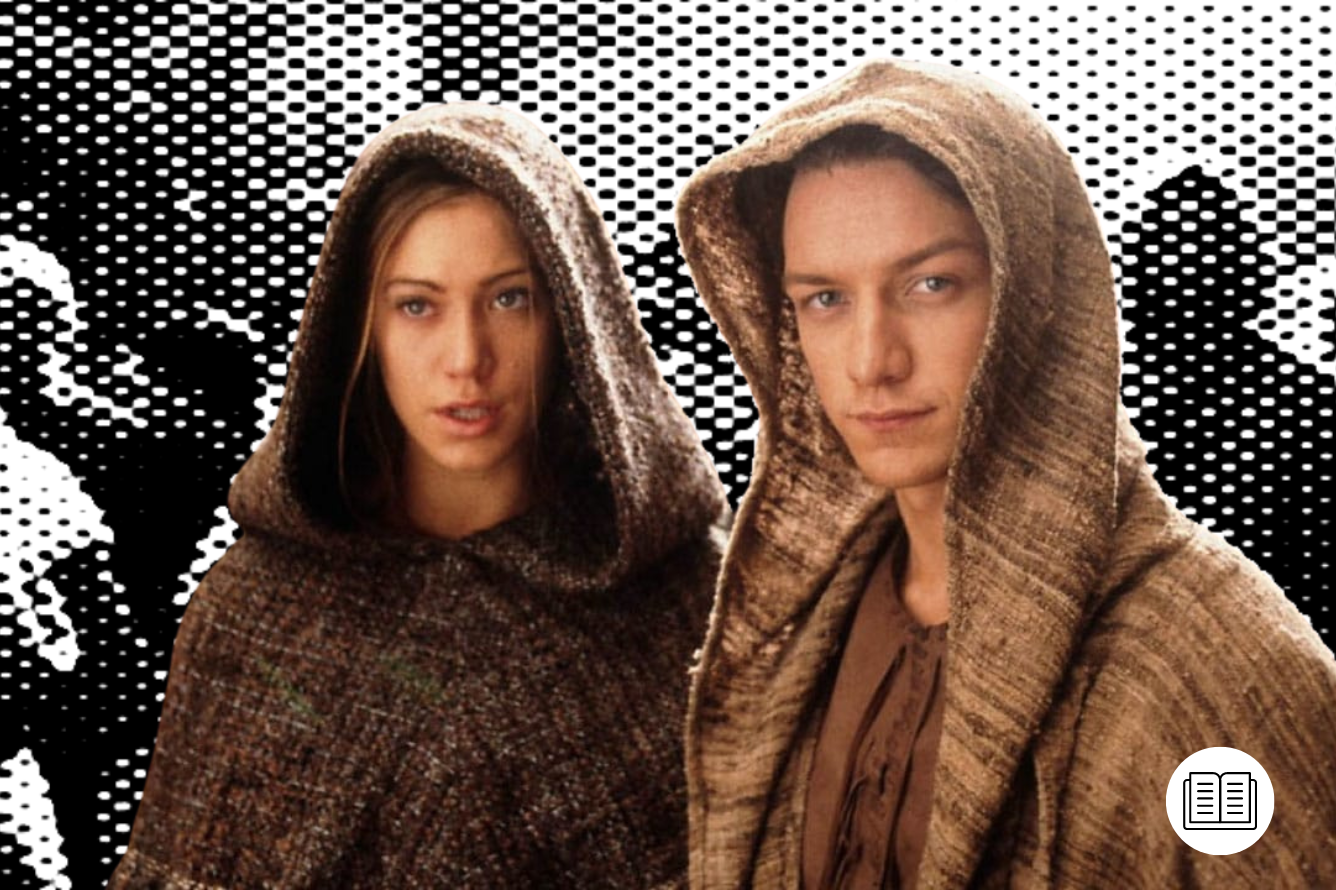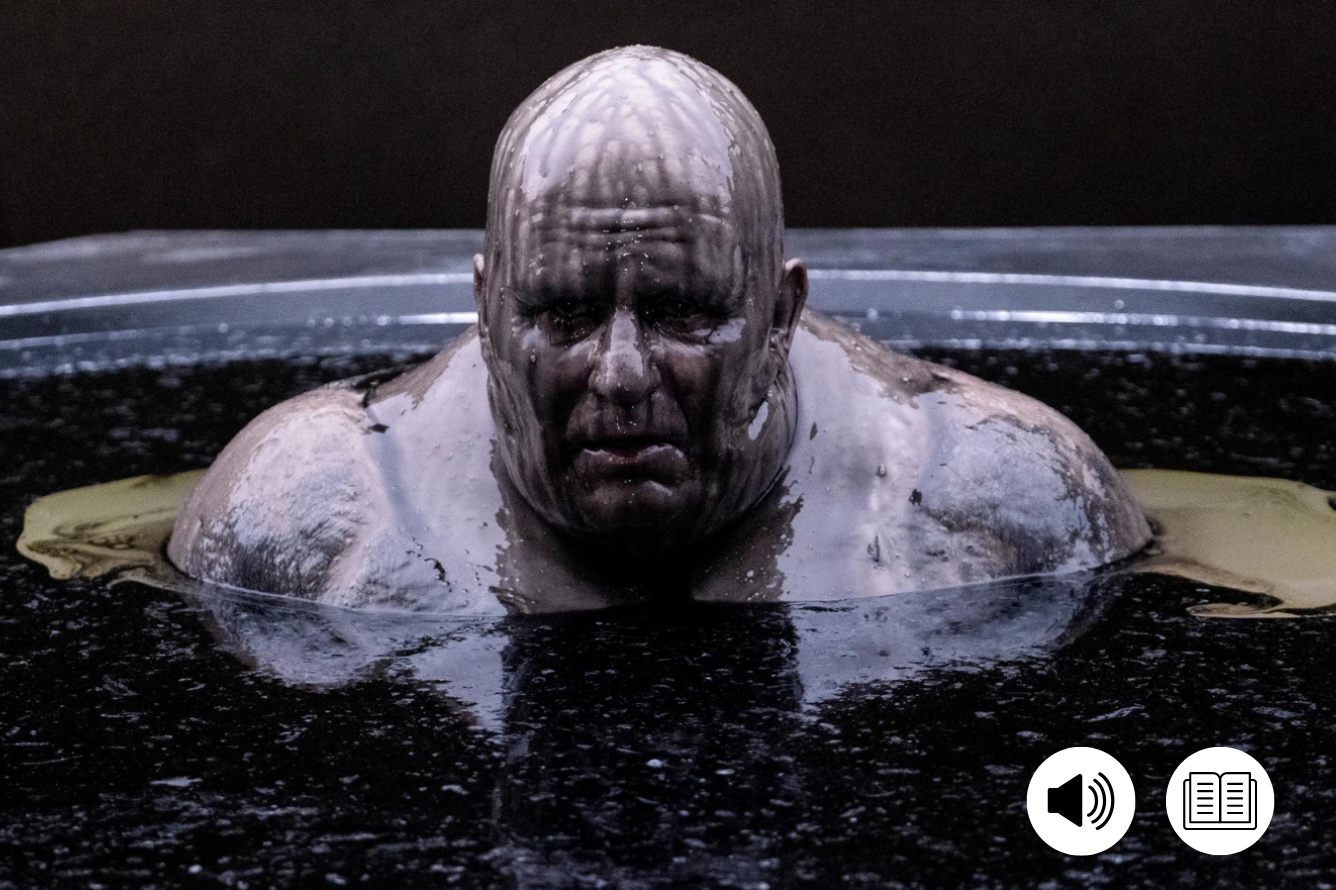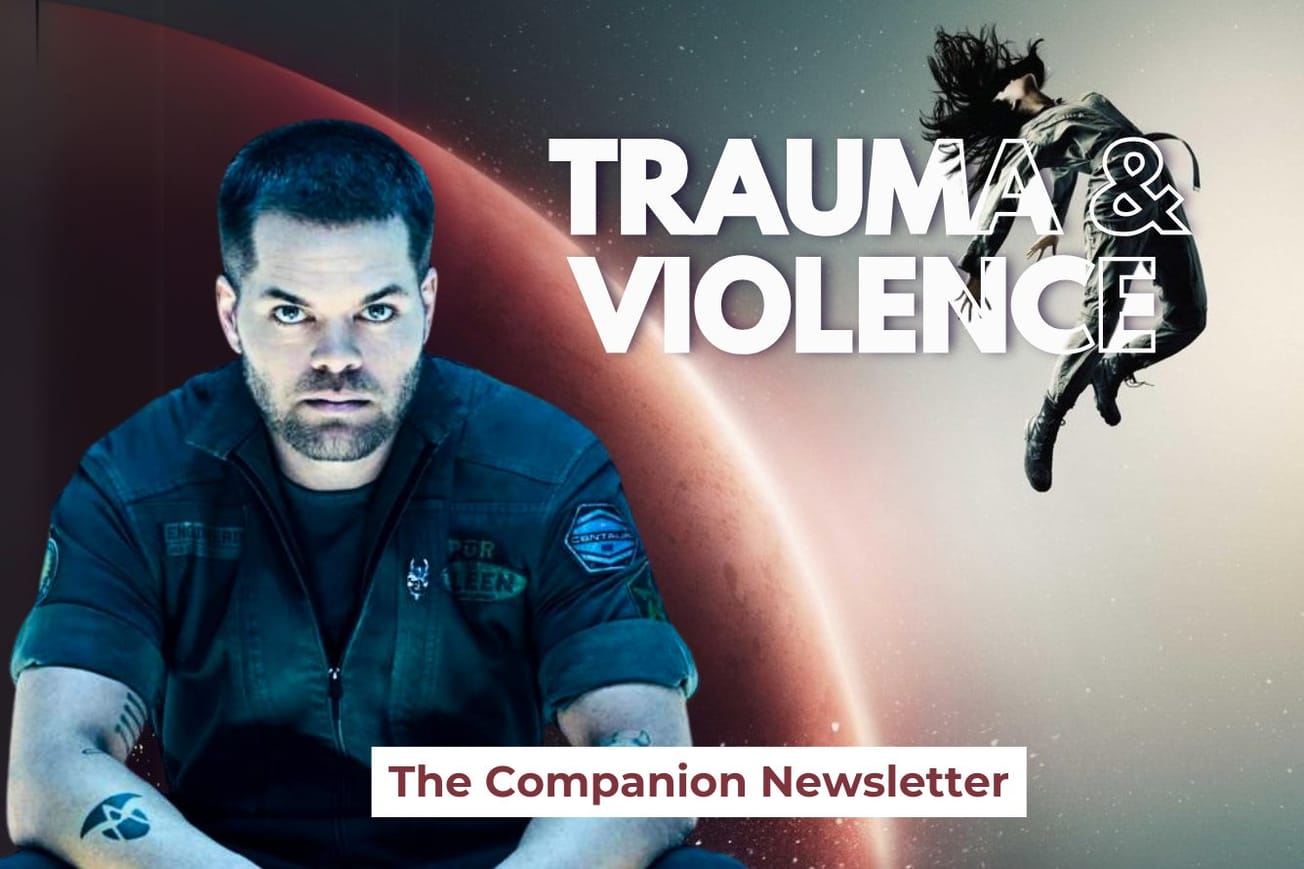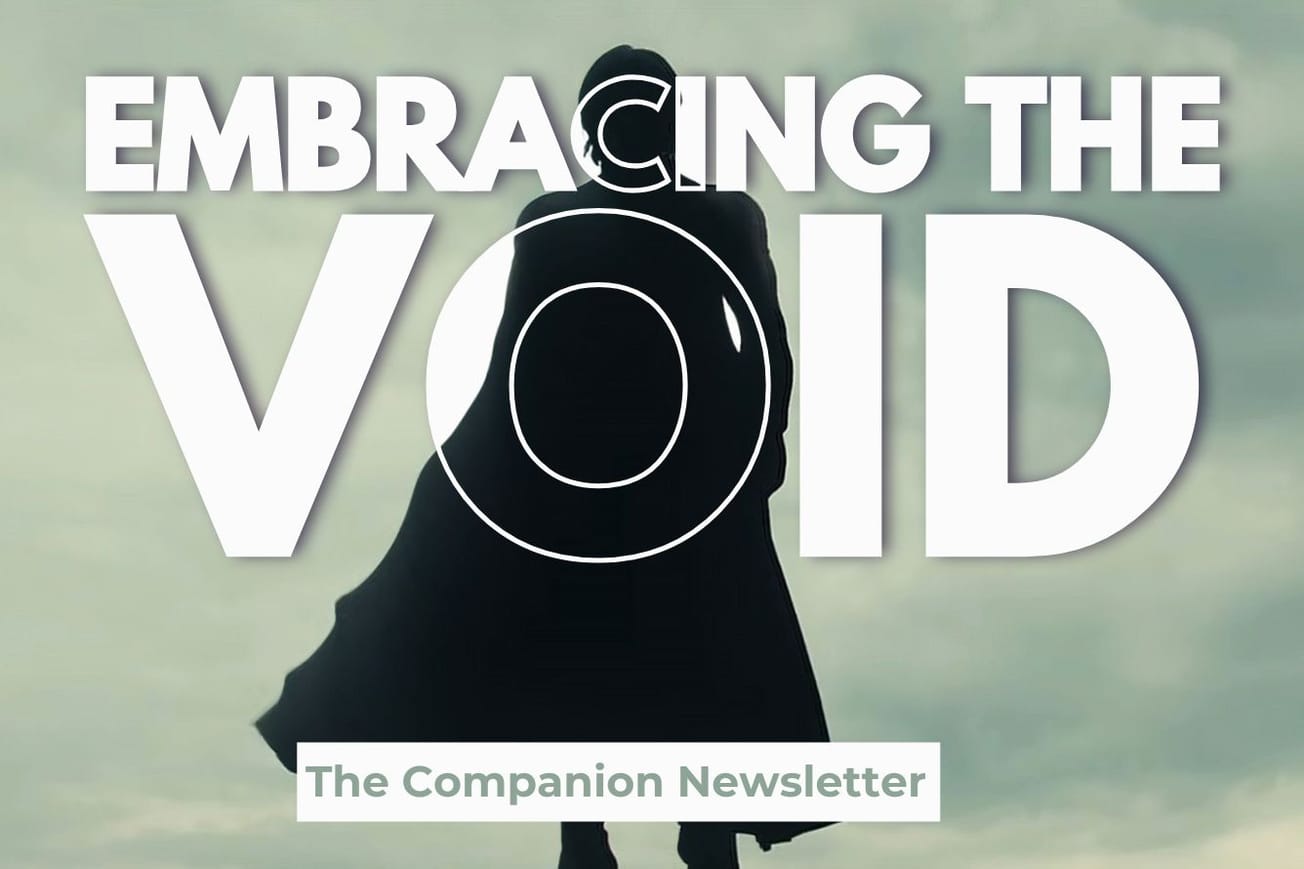After the smash-hit, award-winning success of Frank Herbert’s Dune on the Sci-Fi Channel in 2000, it’s not surprising that a sequel followed. Frank Herbert’s Children of Dune came out three years later and once again, we spoke to cast and crew – many of whom returned – about how it came together.
As Told By
- John Harrison (writer andproducer)
- Greg Yaitanes (director)
- Harry B. Miller (editor)
- Alec Newman (actor; Paul Atreides)
- Julie Cox (actress; Princess Irulan)
- Ernest Farino (Visual FX supervisor)
John Harrison (writer and producer): I kept saying to everyone [during the filming of Frank Herbert’s Dune], ‘Look guys, this is going to work, you better be ready with a sequel.’
Julie Cox (actress; Princess Irulan): We all agreed if John was going to do any more, we’d be committed to it.
Alec Newman (actor; Paul Atreides): Nobody had any inkling of whether we’d be asked to do anymore.
Despite Harrison’s advice, the top brass vacillated and didn’t commit to anything until they saw how successful the first miniseries was.
John Harrison: Within a week, they called me and said, ‘How soon can we have a sequel?’ Luckily, I’d been doing a little bit of research on my own, so I had a pitch ready to go. We had to decide what we were going to do. The next two books were still the continuation of the Atreides saga. The second book is called Dune Messiah and it’s a very short book. Children… came after that and is a massive book.
I said we need Dune Messiah to make this transition from Paul having become the emperor to realizing what he’s done. And becoming this religious figure and all of the awful stuff that’s being done in his name and how he wants to shed himself of this. Let’s do Dune Messiah as the first night and then do Children of Dune as the next two nights – that’s how I pitched it and that’s how I wrote it.
Getting Started on Children of Dune
The Sci-Fi Channel wanted to reunite the cast and crew from the first miniseries, shooting in Prague, with Harrison again directing his script. They also decided to film the entire project on digital cameras. Unfortunately, they hit a scheduling snag.
John Harrison: I had a competing project at ABC. I had felt there might be time to do both and all of a sudden, they were like, ‘We got the money for Children of Dune, we got to go now.’ And I was committed to this other project.
Greg Yaitanes (director): I had done stuff for Sci-Fi Channel in America, I was on their radar. This was really the first thing on television to shoot in hi-def. [Executive producer] Richard Rubinstein was looking for someone who was excited to work in the digital medium. That was willing to tackle tricky material. I had to digest it very quickly. I had a weekend to read all six hours of it. And it was massive, [with] a lot of names, a lot of world-building.
Alec Newman: Greg came into probably quite a tough environment. Everyone was in full command of what we’d done before. [He] did it absolutely brilliantly. John was producing and had obviously written it, so it was still in the same world, but it was great to have a different head in charge of it.
John Harrison: Digital was still fairly cumbersome in terms of the cameras and the recording devices, but the producers wanted to try it. By that time, the digital technology for CG was much better. Greg did a lot more blue screen and green screen than I did. It was a bigger tapestry too. He had more technology at his disposal.

A vast majority of the cast who did the first series came back for Frank Herbert’s Children of Dune, with some exceptions. Saskia Reeves was unavailable, so Alice Krige (the Borg Queen herself) – who had been on Harrison’s radar at the very beginning – took over as Lady Jessica. The eponymous children were played by Jessica Brooks and a then-unknown actor called James McAvoy.
John Harrison: Greg was introduced to both Jessica and James. We talked about it because he said, ‘They’re not twins as they are in the book, but they’re the best actors I’ve seen and they’re really good together.’ There’d been conversations early on that maybe we could find twins to do it. We said okay, they’re fraternal twins.
Greg Yaitanes: [McAvoy] had just come out of drama school. I remember his audition – we met at the Dorchester, he read for us and it’s the only time in my career I’ve been moved to tears in an audition.
Harry B. Miller (editor): James McAvoy was added and boy, was he a revelation. I’d never heard of him.
Alec Newman: We bonded straight away. For a while, we were playing football quite often together, but my knees are a bit stuffed now. I’d rather work than play football with James McAvoy. You could tell that he had something very, very special.
Greg Yaitanes: I fought with the producers to get him on, he wasn’t the producers’ first choice. I almost left the project because I was so passionate about his hiring. I couldn’t see making the show without him.
Julie Cox: He understood when you’re taking on something like that, you have to go for it. He was also running around half-naked quite a lot, which didn’t bother anyone really!

The project also got some more star power in the form of Oscar-winning actress Susan Sarandon, who played Princess Wensicia Corrino.
Julie Cox: I was such a huge fan of hers. Most of the time I couldn’t believe I was on set with her. We had quite a lot to do together.
Greg Yaitanes: That was a big deal back then.
John Harrison: Richard [Rubinstein] had been watching what we call the Thanksgiving Day Parade here in New York. It was the Gay Pride parade and Susan was one of the hosts. And one of the floats came by and apparently she said, ‘Oh that reminds me of the worm in Dune.’ Richard perked up at this and was like, I wonder if she likes Dune? Turns out she was a fan of the book. So he called her up and she was interested in doing it.
The Visual Effects of Frank Herbert’s Children of Dune
While the first miniseries had been shot on film, the progression in computer effects and the fact they were doing Frank Herbert’s Children of Dune on digital changed the game a bit.
Harry B. Miller: We had the advantage of having done the first one, we had a lot more knowledge about how to pull off the visual effects.
Julie Cox: The second one was a lot of green screen and that really changes things as an actor. I had to do my first bit of “flying the spaceship” acting. I was terrible at that, I kept going the wrong way. James McAvoy and I were just laughing all the time because one of us would have to go one way and the other would have to go the other way.
Greg Yaitanes: We were working in the early days of hi-def and things were so vivid on that smaller chip back then. I wanted to embrace it as a new aesthetic. There were a lot of yellows and oranges – very delicious to look at. We were using those big Sony cameras. We kind of hacked into them – broke them open to see what was possible. I’m not someone who’s really precious about film as a medium. I was a camcorder kid, not a Super 8 kid.
Ernest Farino (visual effects supervisor): It wasn’t so much new challenges as refining the approach. I was especially pleased with the opening title sequence for Children of Dune with them flying over the city and the sun bursting out and timing the credits to hit the beats of the music.
Alec Newman: The production values would be more recognizable to young audiences now.
Greg Yaitanes: I thought we did a nice job with the blue eyes. I didn’t want to do contacts [like the previous miniseries]. We were tracking eyes – that wasn’t really being done at the time. I was very, very sensitive about losing performance. I wanted to live closer to the faces than the previous miniseries had done.
Harry B. Miller: All the eyes in the second one, we did it locally in Prague.
Ernest Farino: We got into roto[scope] on Children of Dune because even in the year between the two miniseries, the ability for digital roto had advanced so much that the roto became much more viable.

Just like they had on the first miniseries, the company set up shop on the soundstages of Barrandov Studios in Prague.
Greg Yaitanes: The criticism of the Lynchian version was it was so opaque and so dense and so tough to penetrate that they had to hand out these synopses to people as they were going into the movie theater. I didn’t want that for us.
I stayed somewhat controversially away from reading the books because I wanted to make something that was accessible to everybody… I wanted to keep my objectivity.
Julie Cox: I had to do a job before that and cut all my hair off and they were horrified. I think I might be wearing a dodgy wig or a hairpiece at least. Whenever I see clips, that’s all I can see.
Harry B. Miller: I was not the first editor on Children of Dune. I interviewed with Greg Yaitanes and he hired someone else. And I was fine with that because I didn’t have a relationship with him. And after a week, I got a call from Prague, from Greg, saying, ‘Are you still available?’ It was not working out with the original editor that was hired. They had set up rooms in Burbank. The good news was I knew everybody else except the director and the DP, so it was very easy to step in and feel very comfortable about starting that. Fortunately, the production flew me to Prague fairly early in the production and I got to sit with Greg and show him some edited sequences. We were just there for a couple of days. I got a better sense of how Greg approached things.
Alec Newman: It was my first dad role! I wasn’t near old enough to be anyone’s dad. At least that’s what I insist. To play through the preacher stuff was really cool. I remember coming up with that voice for the preacher.
There was something about his voice sounding like sand, it was from out of Arrakis. I don’t know if I’d have the guts to do that now. Or the throat.
Greg Yaitanes: What I really connected to was the story of family and that’s really what I went into the pitch meeting with. I came from a big Greek family and I understood these complicated family dynamics. It was The Godfather in Space, really.
Harry B. Miller: The second one was even more enjoyable. Lots of people have read Dune and for lots of people that’s where they stop, so the succeeding novels are not that well-known. I don’t understand Frank Herbert’s writing. When everybody started turning into worms, he totally lost me.
Greg Yaitanes: I shot 100 consecutive days. I directed my second unit on the weekend. I never wasn’t filming. I got out to see Prague for half a day the last week I was there.
Harry B. Miller: I think Children of Dune is some of the best work I’ve ever done. I got inspired to do this sequence with Duncan Idaho being mesmerized by the dwarf in the bedroom. And it’s one of [the] best scenes I’ve ever worked on. I’m very proud of it.

The Legacy of Frank Herbert’s Children of Dune
Broadcast on March 16th, 2003, the second miniseries also won the Emmy for visual effects and was a huge hit for the channel. It helped launch a lot of careers, while the entire Dune TV project has had a lasting impact.
Julie Cox: We did quite a lot of sci-fi conventions in America.
Alec Newman: I ended up staying in America. I lived there for three years. I had a wonderful time – did some Star Trek, some Angel, [and] some little indie movies. I had that moment. I did the pilot for Dark Shadows, which unfortunately didn’t go [to series].
Newman went on to play Malik in the Star Trek: Enterprise episodes ‘Borderland’ (S4, Ep4), ‘Cold Station 12’ (S5, Ep4), and ‘The Augments’ (S4, Ep6), and Drogyn in the Angel episodes ‘A Hole in the World’ (S5, Ep15) and ‘Power Play’ (S5, Ep21).
John Harrison: It was intimidating, but it was also such an unbelievably great opportunity at that point in my career.
Alec Newman: I got to play through everything there is of Paul Atreides. I’m the only person to have done that so far. Something I’ve done on planet Earth that I can say I’m the only one.
Julie Cox: It’s the only character I’ve done that had that much longevity. I’ll show it to my son, he’d love that. He’s just turned 13 and loves his sci-fi. See what he makes of all the worms.
Greg Yaitanes: It’s funny how much I’ve drawn on what I did on [Frank Herbert’s Children of Dune] to be prepared for [his latest project, Game of Thrones prequel House of the Dragon]. It was very much shot in that Thronesian, David Lean-type style.
Alec Newman: The further away in time it gets, the more I appreciate about it. To be asked to do that at that stage in my career, what a gift.
John Harrison: My only regret about all of it was we tried to talk them into doing a series following the success of the second one, which would have taken us through the rest of the books. A continuing series, like Westworld. We just couldn’t get over the hump. Couldn’t get them to try and do it.
Greg Yaitanes: I’ve always dreamed of going back to the Dune universe, so if they ever do open up and Denis [Villeneuve] doesn’t do them, I’d love to go back.
This article was first published on October 5th, 2021, on the original Companion website.







